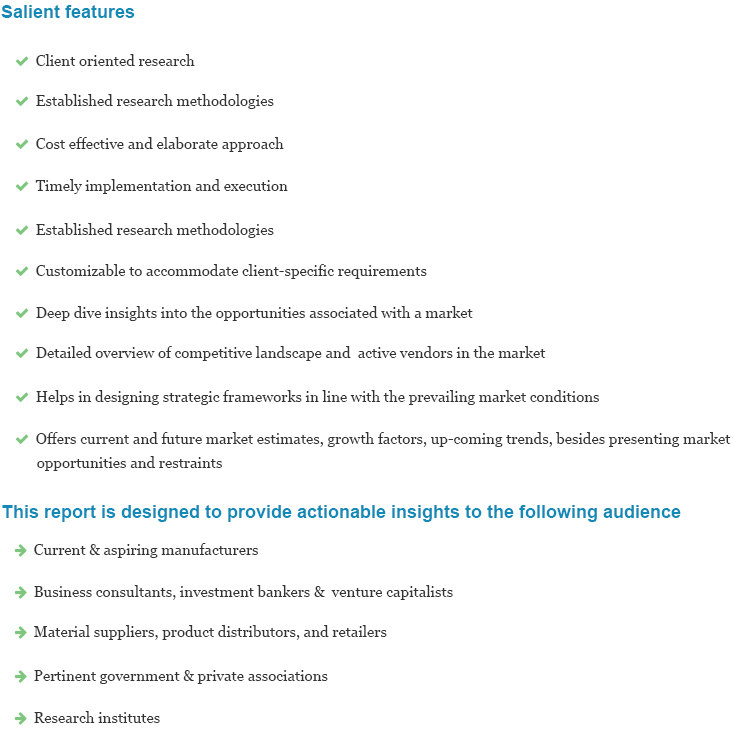
African Engine Oil Market Analysis, Market Size, Application Analysis, Regional Outlook, Competitive Strategies And Forecast, 2016 To 2024
- Published: November, 2016
- Format: Electronic (PDF)
- Number of pages: 90
- Industry: Petrochemicals
The African engine oil market was valued around 2 million tons in 2015. It is expected to surpass 870, 710 kilo liters by 2024 (2016 to 2024 being the forecast period). Augmentation in vehicular sales in African regions like Morocco, Egypt, Algeria, and South Africa will drive the market in the coming eight years.
African automobiles stood more than USD 1.6 million units in 2013. In Africa, twenty one million units of passenger cars were operational that year. Another market contributor is rise in the purchasing power of consumers.
The same factor can also boost the opportunities of market players. Engine oils (lubricants) are also known as motor oils. In automobiles, their function is to reduce ‘metal-to-metal’ friction and decrease engine-damage.
Friction can cause vital engine parts to heat up & damage them. Metal parts are coated with lubricants, allowing the former to move smoothly. Lubricants also remove dust particles & impurities in automobile fuels. Moreover, they seal the gap between cylinder walls and pistons, so that fuel combustion is more efficient. These oils even guard engine parts from rust.
Lubricants are differentiated on the basis of viscosity index, engine size, and volume. When used for longer durations, they lose viscosity index. Their retainment of viscosity is the key to their smooth functioning. To improve the same, additives; like anti-wear agents, pour-point depressants, dispersants, antioxidants, and foam inhibitors are added to them.
Good lubricants have high boiling points, are corrosion-preventers, and possess high viscosity. Moreover, they have thermal stability and low freezing point. Well-lubricated automotives have a longer lifespan and provide users with higher vehicular efficiency.
Lubricants are predominantly made from mineral oils; however, synthetic lubricants are widely accepted. Synthetic oils are largely adopted owing to better environmental compatibility and technical benefits.
On the other hand, wider popularity of hybrid & electric vehicles and vehicles requiring lubricant changes (with extended intervals) can have a negative market impact. However, escalating disposable incomes are likely to boost the sales of automobiles, driving the African & global markets.
South Africa was the leading automobile region, with units exceeding 650 thousand units. The prices of automotive lubricants remained a key factor influencing customers’ purchase decisions. Other factors that affected consumers’ buying decisions were mechanic service centers, branding, spare parts, and sales services.
Automotive engine oil industry was the reigning segment in 2014. It accounted for over 50% of the total volumes that year. The same year, Egypt’s automobile lubricants market generated 20% of the overall volumes. Nigerian engine lubricant industry is expected to the ‘most lucrative’ till 2024.
The African engine lubricant industry should grow due to accessibility to high performance raw materials; like group II and group III base stocks. These raw-products are crucial to establish type II & III based stock plants.
However, they are deficient in Africa. Base oils captured over 51% of the total shares (in terms of demand) in the recent past. While some of it is derived from imports, around 20% is completed through recycled base.
In South Africa, about 15% of base lubricant deficits were extracted from re-refined sectors (that were developed through sanctions to conserve petroleum products). This restricted the burning or disposal of ‘used oils.’
Oikol is an NGO (non-profit organization) that collects ‘used oils’ from service stations & industrial areas. It transports them to storage depositories in the region. The oil is then supplied to Chemico for re-refining.
API (American Petroleum Institute) CC/CDS & CFs are the low grade lubricants that are widely used in Africa. However, the need for ‘high-quality’ base lubricants is taking pace. The market is divided into applications and regions.
On the basis of applications, the African engine oil market is fragmented into industrial, automotives, and others. Others include aviation and marine. Automotives comprise passenger vehicles and commercial vehicles. Both these segments are further classified into sales channels; like workshops, original equipment manufacturer (OEM) dealerships, garages, and others (consisting of independent retailers).
Independent workshops were the most preferred channel for oil refills in most passenger vehicles. Rising demand for independent workshops primarily stems from their quick service deliveries as compared to OEM dealers.
Moreover, independent dealers provide ‘lubricant refills’ at much affordable rates as against OEMs. On the contrary, independent retailers sell lubricants of all brands, thus enabling these shops offer low cost & easily-available lubricants that draw customer attention.
The most vital factor for the African market is margins. Other factors taken into consideration by buyers are price, product quality, and brand awareness. Regions of the African engine oil market encompass Algeria, Egypt, Morocco, Nigeria, South Africa, and Sudan. Together, they accounted for over 70% volumes in 2014. The Egypt lubricants industry produced about 20% volumes the same year.
The Nigerian engine lubricants market generated nearly 8.2% shares (with respect to volumes) in 2014. Investments in transportation projects are planned at USD 500 billion in the market. This is predicted to impel expansion across the automobile industry in the near future.
Nigeria and Egypt are the most populous regions of Africa. They have experienced rapid economic growth, spurred by wide industrialization. This would raise middle-class consumer spending capacities and propel the demand for lubricants in these regions.
Volumes of the South African lubricants industry were over 17% in 2014. Within this, industrial applications led the market in 2014, holding over 45% shares. While automotive segment generated over 40% volumes in 2014, the remaining were captured by marine and aviation applications.
South Africa also experienced investments by and involvement of multinational companies; like Shell, Chevron, and Castrol. The current oil blending capacity of the country has exceeded its domestic need.
Furthermore, this nation has major foreign petrochemical companies investing in Africa. Over ten blending plants have profited from totally-owned lubricant blending units.
Key players of the African engine oil industry are Castrol, Total S.A., Chevron Corporation, Royal Dutch Shell Plc., and Engen. Other companies include Exxon Mobil Corporation, Forte, Conoil Plc., and Oando Plc. Technological advances, acquisition of smaller companies, sell-offs, and collaborative deals are some of their competitive drivers.

Choose License Type
- World's largest premium report database
- Transparent pre & post sale customer engagement model
- Unparalleled flexibility in terms of rendering services
- Safe & secure web experience
- 24*5 Research support service
